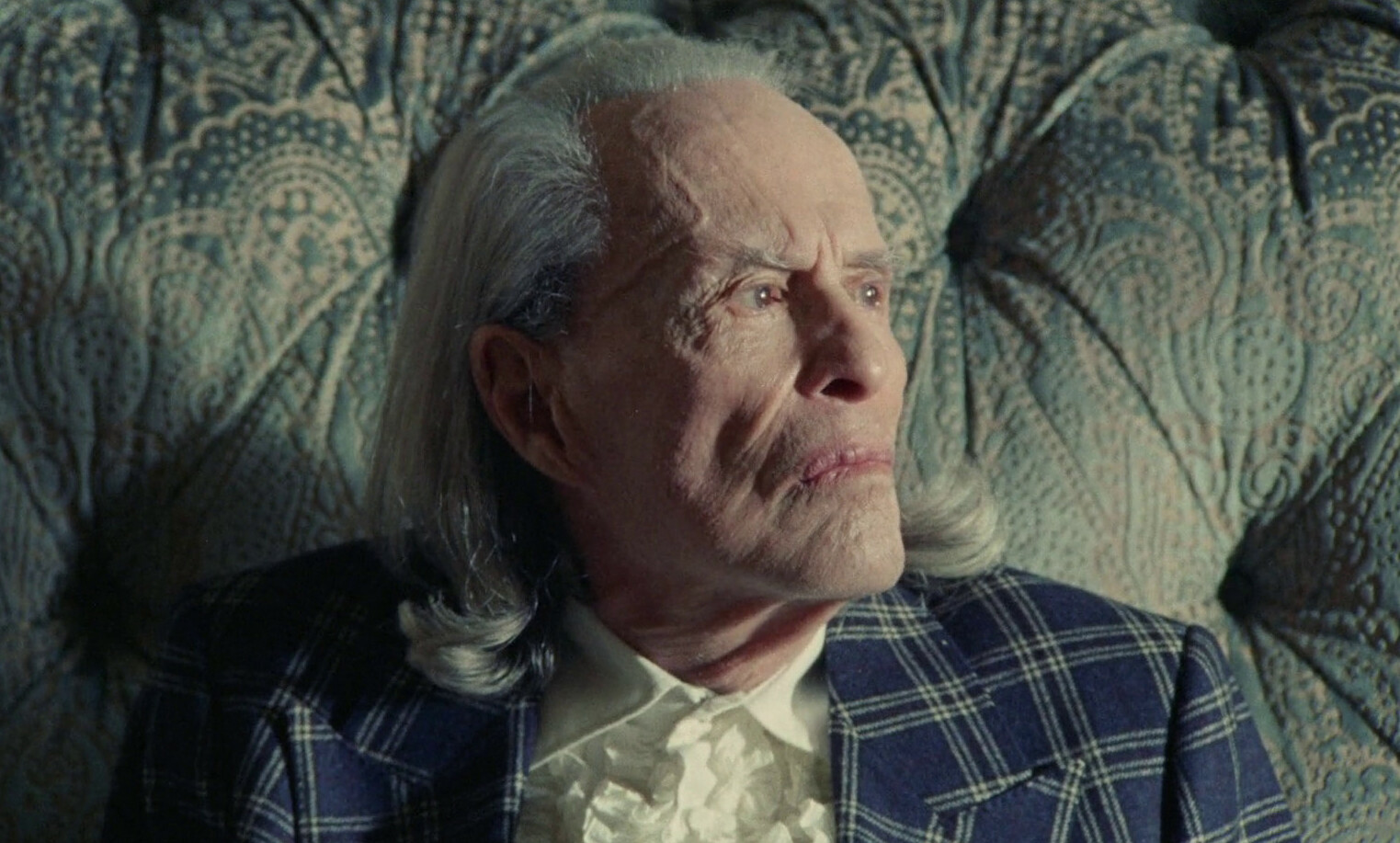Kenneth Anger
 Kenneth Anger (born Kenneth Wilbur Anglemyer, February 3, 1927 – May 11, 2023) was an American underground experimental filmmaker, actor, and writer. Working exclusively in short films, he produced almost 40 works beginning in 1937, nine of which have been grouped together as the "Magick Lantern Cycle". Anger's films variously merge surrealism with homoeroticism and the occult, and have been described as containing "elements of erotica, documentary, psychodrama, and spectacle". He has been called "one of America's first openly gay filmmakers", with several films released before homosexuality was legalized in the U.S. Anger also explored occult themes in many of his films; he was fascinated by the English occultist Aleister Crowley and an adherent of Thelema, the religion Crowley founded.
Kenneth Anger (born Kenneth Wilbur Anglemyer, February 3, 1927 – May 11, 2023) was an American underground experimental filmmaker, actor, and writer. Working exclusively in short films, he produced almost 40 works beginning in 1937, nine of which have been grouped together as the "Magick Lantern Cycle". Anger's films variously merge surrealism with homoeroticism and the occult, and have been described as containing "elements of erotica, documentary, psychodrama, and spectacle". He has been called "one of America's first openly gay filmmakers", with several films released before homosexuality was legalized in the U.S. Anger also explored occult themes in many of his films; he was fascinated by the English occultist Aleister Crowley and an adherent of Thelema, the religion Crowley founded.Anger was born into a middle-class Presbyterian family in Santa Monica, California. He began making short films when he was 14 years old, although his first film to gain any recognition was the homoerotic ''Fireworks'' (1947). The work's controversial nature led to his trial on obscenity charges, but he was acquitted. A friendship and working relationship subsequently began with pioneering sexologist Alfred Kinsey. Moving to Europe, Anger produced a number of shorts inspired by the avant-garde scene there, such as ''Eaux d'Artifice'' (1953) and ''Rabbit's Moon'' (1971).
Returning to the U.S. in the early 1950s, Anger began work on several new projects, including the films ''Inauguration of the Pleasure Dome'' (1954), ''Scorpio Rising'' (1964), ''Kustom Kar Kommandos'' (1965), and the gossip book ''Hollywood Babylon'' (1965). The latter became infamous for various dubious and sensationalist claims, many of which were disproved, though some remain urban legends. Getting to know several notable countercultural figures of the time, Anger involved them in his subsequent Thelema-themed works, ''Invocation of My Demon Brother'' (1969) and ''Lucifer Rising'' (1972). After failing to produce a sequel to ''Lucifer Rising'', which he attempted through the mid-1980s, Anger retired from filmmaking, instead focusing on ''Hollywood Babylon II'' (1984). In the 2000s he returned to filmmaking, producing shorts for various film festivals and events.
Anger described filmmakers such as Auguste and Louis Lumière, Georges Méliès, and Maya Deren as influences, and has been cited as an important influence on directors like Martin Scorsese, David Lynch, and John Waters. ''Kinsey Today'' argued that Anger had "a profound impact on the work of many other filmmakers and artists, as well as on music video as an emergent art form using dream sequence, dance, fantasy, and narrative." Provided by Wikipedia
-
1
-
2